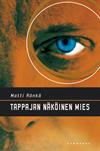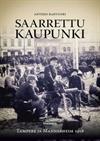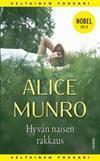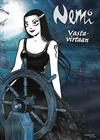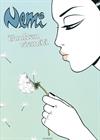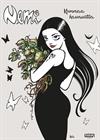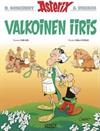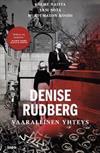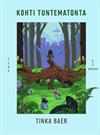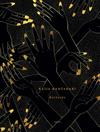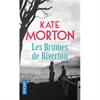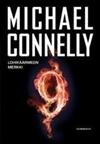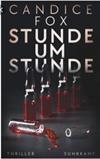
Measuring the World
Registered by bookguide of Wijchen, Gelderland Netherlands on 1/25/2012
 This Book is Currently in the Wild!
This Book is Currently in the Wild!
 This Book is Currently in the Wild!
This Book is Currently in the Wild!
3 journalers for this copy...
Back cover:
At the end of the 18th century, two brilliant and eccentric young scientists set out to measure the world. Alexander von Humboldt swashbuckled his way across the globe, navigating ocean and jungle, eating with cannibals, swimming with electric eels, lowering himself into volcanoes and scaling the highest mountain known to man.
Carl Friedrich Gauss, on the other hand, stayed at home, using the power of thought to battle his way into exotic mathematical realms and the landmark realization that space is curved.
At the end of the 18th century, two brilliant and eccentric young scientists set out to measure the world. Alexander von Humboldt swashbuckled his way across the globe, navigating ocean and jungle, eating with cannibals, swimming with electric eels, lowering himself into volcanoes and scaling the highest mountain known to man.
Carl Friedrich Gauss, on the other hand, stayed at home, using the power of thought to battle his way into exotic mathematical realms and the landmark realization that space is curved.
I was particularly interested to read this after having recently read Redmond O’Hanlon’s book about travelling in the area between the Amazon and the Orinoco in Venezuela, inspired by the travels of Alexander von Humboldt in the late 18th century. This book contrasts the lives of contemporaries Humboldt and Gauss, both eminent scientists, but with totally different approaches to science. Humboldt was a restless adventurer, constantly experimenting and trying to prove and disprove theories in practice. He published extensively, made sure that the public was kept informed of his travels and findings, so that his work captured the public imagination and made him a celebrity and gave him access to royalty, the President of the newly-born United States, and other eminent scientists and thinkers. Gauss, on the other hand, was a naturally-gifted mathematician from an early age, whose brilliance gave him more limited access to the elite, limited both by his natural reserve and his lack of funding. He concentrated on thought experiments, and many of his ideas were before his time, and were later to be discovered by others as he often failed to publish. He seems to fit the typical idea of the savant autist, able to understand things which most people cannot, with a brain which works faster than most people’s, so frustrated at their slowness, yet unable to fit in with other people’s social expectations. Towards the end of the book, however, the roles seem reversed, as Gauss had lived a family life and experienced both deep love with his wife as well as being experienced in the ways of the world, having had a mistress, a second wife and children (although he has little sympathy with his long-suffering son Eugen). As such, he is suddenly more worldly-wise that Humboldt when he realises that the wife of the Commander of the Gendarmerie knows where he is to be found.
If they had been alive today, I expect both Humboldt and Gauss would have been diagnosed with some mental disorder, both with some form of autism, Gauss with Asperger's and Humboldt with ADHD. If they were very lucky, their brilliance would have been rewarded by joining some sort of education for gifted children. Most probably, Humboldt would have been encouraged to channel his energy into one discipline; the all-round, renaissance man is not encouraged in today's education system. In the book, Gauss suffers the fate of many highly-intelligent people who cannot appreciate how "normal" people think: "Most of his later memories were of slowness. For a long time he had believed that people were acting or following some ritual that always obliged them to pause before they spoke or did something. Sometimes he managed to accommodate himself to them, but then it became unendurable again. Only gradually did he come to understand that they needed these pauses. Why did they think so slowly, so laboriously and hard?" This reminds me very much of comments I've heard from many clever people, and suffered from, as the person who can't keep up!
As a bookish person, I enjoyed this quote:
"Writing a novel... seemed to him the perfect way to capture the most fleeting essence of the present for the future."
I didn't find the book was written in a particularly literary style (or perhaps it was just the translation), but this passage did stand out:
"Why was he sad? Maybe because he could see his mother was dying. Because the world seemed so disappointing as soon as you realized how thinly it was woven, how crudely the illusion was knitted together, how amateurish the stitches were when you turned it over to the back."
There was also plenty of humour, and I enjoyed the jab at Napoleon, who "won battles by being the first to announce with absolute authority that he'd won them." This also amused me: "Linguistics was for people who had the precision for mathematics but not the intelligence. People who would invent their own makeshift logic." I shall have to pass this on to some of my linguist friends!
If they had been alive today, I expect both Humboldt and Gauss would have been diagnosed with some mental disorder, both with some form of autism, Gauss with Asperger's and Humboldt with ADHD. If they were very lucky, their brilliance would have been rewarded by joining some sort of education for gifted children. Most probably, Humboldt would have been encouraged to channel his energy into one discipline; the all-round, renaissance man is not encouraged in today's education system. In the book, Gauss suffers the fate of many highly-intelligent people who cannot appreciate how "normal" people think: "Most of his later memories were of slowness. For a long time he had believed that people were acting or following some ritual that always obliged them to pause before they spoke or did something. Sometimes he managed to accommodate himself to them, but then it became unendurable again. Only gradually did he come to understand that they needed these pauses. Why did they think so slowly, so laboriously and hard?" This reminds me very much of comments I've heard from many clever people, and suffered from, as the person who can't keep up!
As a bookish person, I enjoyed this quote:
"Writing a novel... seemed to him the perfect way to capture the most fleeting essence of the present for the future."
I didn't find the book was written in a particularly literary style (or perhaps it was just the translation), but this passage did stand out:
"Why was he sad? Maybe because he could see his mother was dying. Because the world seemed so disappointing as soon as you realized how thinly it was woven, how crudely the illusion was knitted together, how amateurish the stitches were when you turned it over to the back."
There was also plenty of humour, and I enjoyed the jab at Napoleon, who "won battles by being the first to announce with absolute authority that he'd won them." This also amused me: "Linguistics was for people who had the precision for mathematics but not the intelligence. People who would invent their own makeshift logic." I shall have to pass this on to some of my linguist friends!
Journal Entry 3 by bookguide at Strandpaviljoen Zoomers in Castricum, Noord-Holland Netherlands on Sunday, June 30, 2013
Released 10 yrs ago (6/30/2013 UTC) at Strandpaviljoen Zoomers in Castricum, Noord-Holland Netherlands
WILD RELEASE NOTES:
This book has been released as part of the following BookCrossing challenges:
- The Ultimate Challenge - read and release books, with extra points for a monthly theme
- Reduce Mount TBR (To Be Read) - read and release books on the TBR list since before the end of 2012. My reading goal is 65 books.
- Pages Read Challenge - read a self-set target number of pages in 2013. My goal is 26,000.
- 1001 Books You Must Read Before You Die Challenge. 2013 goal: 24.
- The Ultimate Challenge - read and release books, with extra points for a monthly theme
- Reduce Mount TBR (To Be Read) - read and release books on the TBR list since before the end of 2012. My reading goal is 65 books.
- Pages Read Challenge - read a self-set target number of pages in 2013. My goal is 26,000.
- 1001 Books You Must Read Before You Die Challenge. 2013 goal: 24.
Journal Entry 4 by  dutch-book
dutch-book at Heerenveen , Fryslân (Friesland) Netherlands on Sunday, June 30, 2013
at Heerenveen , Fryslân (Friesland) Netherlands on Sunday, June 30, 2013
 dutch-book
dutch-book at Heerenveen , Fryslân (Friesland) Netherlands on Sunday, June 30, 2013
at Heerenveen , Fryslân (Friesland) Netherlands on Sunday, June 30, 2013
Took it from the meeting. Sounds good.
Journal Entry 5 by  dutch-book
dutch-book at Heerenveen , Fryslân (Friesland) Netherlands on Thursday, April 21, 2016
at Heerenveen , Fryslân (Friesland) Netherlands on Thursday, April 21, 2016
 dutch-book
dutch-book at Heerenveen , Fryslân (Friesland) Netherlands on Thursday, April 21, 2016
at Heerenveen , Fryslân (Friesland) Netherlands on Thursday, April 21, 2016
Finished it today. The idea was fascinating, but I somewhat felt that the book was more about Gauss and von Humbolt than about their travels and ideas. I would have loved to read more about those. But its fascinating to read about these people who were far ahead of their time. I do enjoy history.
Journal Entry 6 by  dutch-book
dutch-book at BC Meeting 2016 in Castricum, Noord-Holland Netherlands on Saturday, July 2, 2016
at BC Meeting 2016 in Castricum, Noord-Holland Netherlands on Saturday, July 2, 2016
 dutch-book
dutch-book at BC Meeting 2016 in Castricum, Noord-Holland Netherlands on Saturday, July 2, 2016
at BC Meeting 2016 in Castricum, Noord-Holland Netherlands on Saturday, July 2, 2016
Released 7 yrs ago (7/3/2016 UTC) at BC Meeting 2016 in Castricum, Noord-Holland Netherlands
WILD RELEASE NOTES:
To the meeting.
Meegenomen van de super geslaagde meeting van vandaag.
Journal Entry 8 by miekster at Leeuwarden, Fryslân (Friesland) Netherlands on Sunday, September 11, 2016
Got stuck at page 30 or so. :(
Journal Entry 9 by miekster at Minibieb Boterhoek (Tresoar OBCZ) in Leeuwarden, Fryslân (Friesland) Netherlands on Wednesday, October 12, 2016
Released 7 yrs ago (10/12/2016 UTC) at Minibieb Boterhoek (Tresoar OBCZ) in Leeuwarden, Fryslân (Friesland) Netherlands
WILD RELEASE NOTES:
In de boekenkist.
